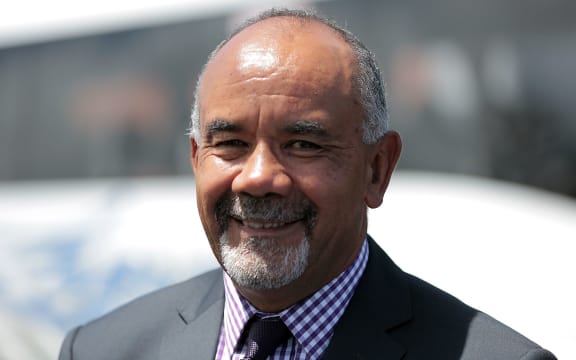The Government is rejecting suggestions Maori are being unfairly targetted in the police or corrections systems the Maori Party co-leader Te Ururoa Flavell has described as institutionally racist.
A visiting United Nations delegation says the Government needs to investigate why a systemic bias against Maori is evident in the country's criminal justice system.
The delegation, which reports to the UN Human Rights Council, says any bias against Maori leading to their incarceration more than other New Zealanders constitutes arbitrary detention and is illegal under international law.
Speaking after a two-week tour, chairperson Mads Andernas said 50 percent of the male and 65 percent of the female prison population are Maori. Fifty-four percent of young people in Youth Court and 71 percent of child offenders in the Family Court are also Maori.

Maori Party co-leader Te Ururoa Flavell. Photo: RNZ / Diego Opatowski
Mr Flavell told Radio New Zealand's Morning Report programme on Tuesday his party has tried to bring down the Maori rates of incarceration, and the UN report only reflects previous findings.
He say they can't control necessarily what a judge does in front of a court but the system is institutionally racist.
Despite the Maori Party having held both the associate Corrections portfolio and the Maori Affairs portfolio since 2008, Mr Flavell rejected suggestions his colleagues should shoulder some of the blame for the high Maori incarceration figures, saying it came down to the system itself.
Mr Flavell says the Government should review the whole justice system.
'Practical solutions' needed
A Victoria University senior law lecturer says people need to start focusing on practical solutions to address what's been called a systemic bias against Maori in the criminal justice system.
Mamari Stephens, who specialises in Maori in the legal system, says there are many areas that need to be changed.
She says at every point before sentencing, the nature of the contact with police, social workers, probation officers and the judiciary can be improved.
Ms Stephens is also calling for structural change in the criminal justice system to address the issues raised by the United Nations.
Tide turning - minister
Police and Corrections Minister Anne Tolley says she has seen no evidence of institutional racism in either police or Corrections.
"Quite the reverse in fact; there's a lot of work going on. The police are turning the tide and we're very impressed by that work and of course in Corrections the work that's going on to reduce reoffending."
Ms Tolley says the UN report is only an interim one, and it's important to wait for the full report before giving a full response.
In a statement, she said: "Police and Corrections are working extremely hard to keep Maori out of the justice system and to reduce reoffending, through rehabilitation, for those already convicted.
"Police continue to build positive and constructive relationships with iwi and the community to prevent crime and to reduce the number of Maori youth and repeat offenders, for example through the Turning The Tide action plan.
"The Government will respond to the UN Working Group once we've received and considered its formal, substantive report."
The Labour Party says the report must be taken seriously. Police and corrections spokesperson Jacinda Ardern says it is important to make sure people do not enter the justice system in the first place but also that they get a fair go if they do end up in trouble.

